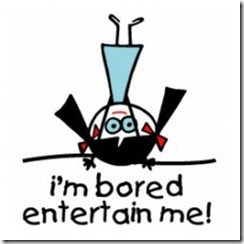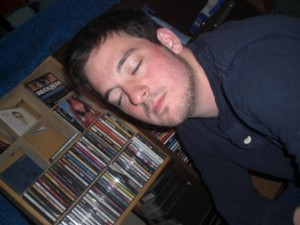Fiction-Zone: Leaps in Fiction Mastery by Diane Holmes, Chief Alchemist of Pitch University
It’s a mindset.
One of my long-time writing friends flew in for a long weekend of Being a Writer. It’s not just an event, it’s a mindset.
You know what I mean? It’s special when you’re with other writers, brainstorming and talking over the juicy aspects of craft for the sheer pleasure of geeking out on Being A Writer.
Some spouses can do this for us. Writer stand-ins. But not many.
I mean, how many hours can they stay enthralled with the many nuances of point-of-view or the thesis topic “storytelling is essential to human existence”?
Not that many.
Us? As long as we breathe.
And we’re better for it. Better in our work, and better in our head, too, which is the source of everything.
Let’s face it; we think for a living. The end result is words on the page (web or print), but the method is all in our heads.
Simply speaking, we are brilliant.
Being brilliant is our stock and trade.
And yet most of us work alone, and it’s darn hard to be brilliant (or feel brilliant) without another writer-brain to ignite the fire.
So, here are 5 reasons you need another writer’s brain
1. The Stillness of Logic
.We can convince ourselves, “sure that works,” when, in fact, it does not. We have stretched, pulled, and ripped the fabric of credulity, yet we’re clinging to our personal need for ‘it’ (the writing equivalent of ‘x’) to work.
Another writer can throw out the life preserver (‘cause we’re in our own ocean of thought, far, far from shore), and reel us back in.
2. Outrageously Better
There is a point where we have come up with our best. Our good-as-we-can. But when placed in the room with another writer, we discuss it like it’s a real thing, except now it’s illuminated by two brains, not just one. And it’s that simple.
As we hash it over, we own the entire universe of two brains. We explore the best thing ever: new terrain.
You see, it’s not just what’s written. It’s pretty much everything that has now or ever will exist. And then… suddenly there’s a doorway to a parallel universe, too. Suddenly, things are Seuss-i-fied. Oh, the place we’ll go.
It take a fellow traveler to hold the door open for us to see what is hidden and beyond. Hint, It’s hidden from us. How can we see it?
And that is how we make things outrageously better. Normal is our world. Better is the universe. Outrageous is what is beyond that.
(I think I’m implying that writers may be time-travel portals, but that’s the subject of another article.)
3. Shoved Off-Balance
Being shoved off-center, losing our balance, is the most creative thing another writer can do for us.
Without realizing it, we fight to keep our sense of level, to keep our writing world plumb. We seem to automatically make our thoughts “exactly vertical” to fit the narrow parameters of the assignment.
But the best ideas, the ones that captivate readers, are often askew, unexpected, or what we call ‘fresh.’
Another writer can hip-check your thoughts, knock you into new thoughts. Together, you create writing magic.. (And magic, as we all know, is a juxtaposition to order and reality… or else it wouldn’t be magic.)
4. Sanity Check
Sometimes you just can’t get a “goodness read” on your writing. It’s easy to edit and edit and edit, without making anything better.
You need a sanity check, before you destroy your own prose.
And you need a writer for this, because she or he can tell you why, which is often where the sanity is involved.
Does it work or not? No matter what “you” say, why should I believe you? It’s in the why. And we need a why that speaks writer.
It’s one thing to hear, “Yes, this works.”
It’s another to hear,
“Yes, this works, because it brings a beautiful parallel construction to your opening and ending scenes, and it illuminates the small heartbreaks that accompany survival. When I read that, I knew your character would survive and had learned that she wasn’t a victim.”
Now, I believe it works.
5. Fun
Okay, you might think I’m a little simplistic here, but the reason we writers write is because we like it. It’s satisfying and meaningful and challenging, and above all… FUN.
Yes, it’s full of angst. Yes, it’s the hardest, most grueling thing we’ll ever do, but ultimately, it has to be fun.
Why?
Because no one is asking us to do it. No one said, “You must go to college and become a writer. The world can not function without electricians, doctors, police officers, and writers.”
Now we might feel that way. For many of us it is a calling. We do hope to make the world better. But honestly, it’s us driving the career choice, not society and employers.
Frankly, I’ve never heard of a shortage of writers. Or that we must outsource writing, because there’s so much demand.
* Okay, all you tech writers. You probably are the exception. 😉
For almost every writer, it is our dream. Our passion. Our quest to be a writer.
So, for Pete’s sake, have fun. Cause I’ve got news for you. Your angst, dreams, hopes, and fears will only sustain you for so long.
Fun is eternal.
But, it’s hard to generate lasting fun all alone. Lasting writing fun. For that, you need another writer. Seriously, who’s going to laugh at that semicolon joke with you? Or think 10-minute-writing-bursts are a “good time?” Or believe critiquing and brainstorming = Par-TAY?‘
Yup, you need another writer or 12. You just do.
And you can quote me on that.
—
 Diane writes two alternating columns for Freelance-Zone:Fiction-Zone: Leaps in Fiction Mastery and Marketing-Zone:Marketing-Zone: Marketing Yourself and Your Book.
Diane writes two alternating columns for Freelance-Zone:Fiction-Zone: Leaps in Fiction Mastery and Marketing-Zone:Marketing-Zone: Marketing Yourself and Your Book.




